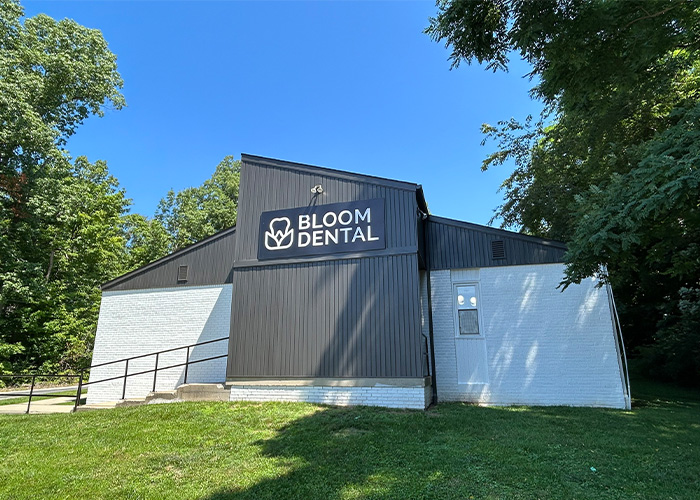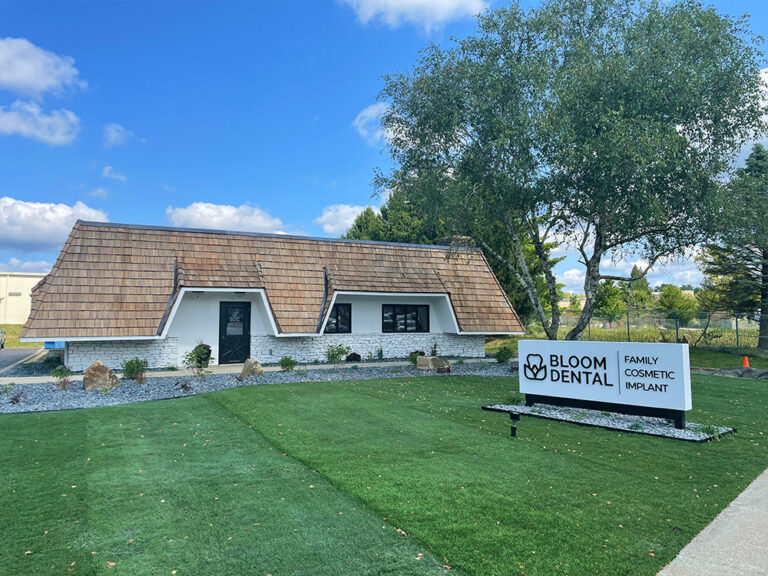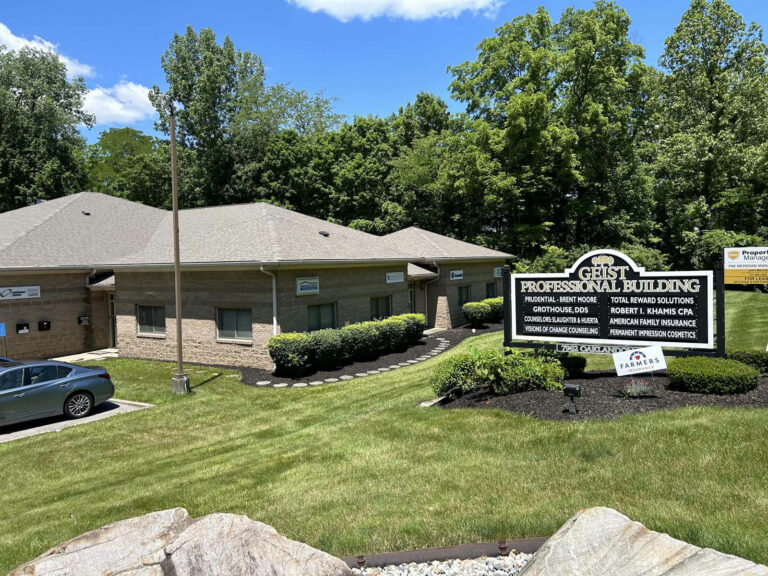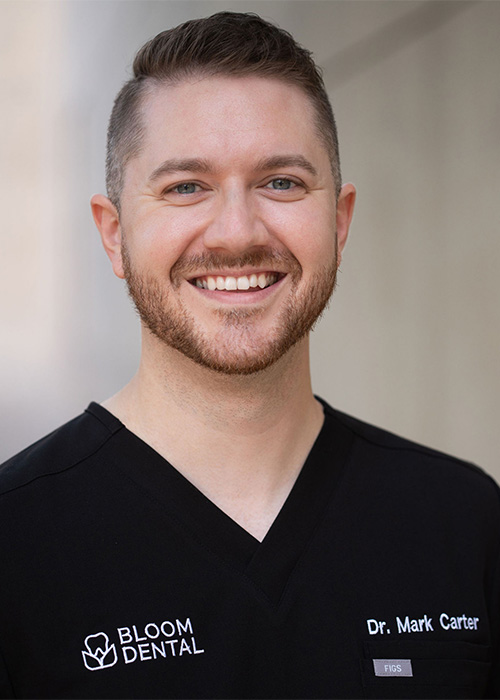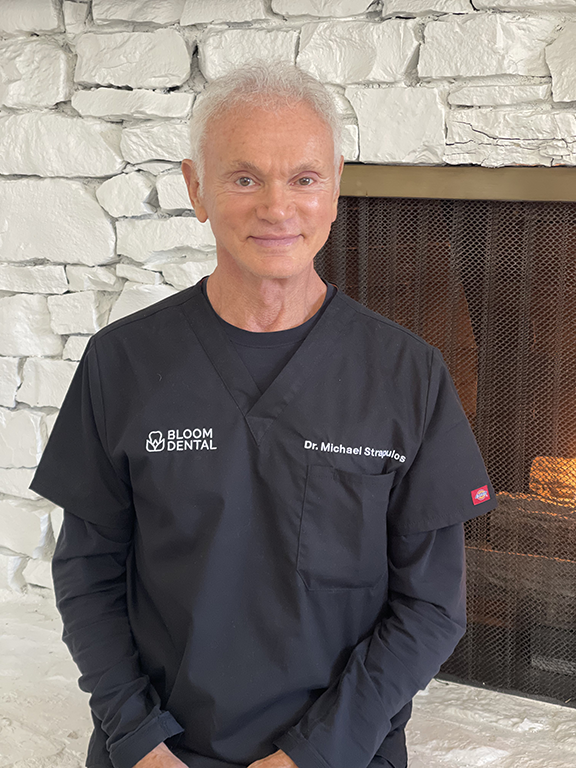Periodontal Disease Treatment (Gum Disease)
Gum disease is a serious condition that affects people from all walks of life. Bloom Dental provides periodontal services for all stages of gum disease to restore your oral health.
Gum Disease Treatment
in Bedford, Bloomington, Geist, and Greenwood, IN
Periodontal disease is, also known as periodontitis and/or gum disease, is an infection that occurs around the soft tissue of the tooth and can also affect supporting bone. Infections can form as bacteria attach and accumulate around the tooth, thereby causing inflammation. If the infection is left untreated, it can eventually lead to tooth loss and other health problems.
Gingivitis is the earliest stage of gum disease. Improving your oral hygiene habits, such as more frequent brushing and flossing, can typically reverse it. Periodontitis is the second stage of gum disease, which occurs if gingivitis is not treated. With periodontitis, the supporting tissues of the teeth, including gums, periodontal ligaments/fibers, and bone, are destroyed. This disease is irreversible, and active treatment is crucial to prevent further destruction.
Schedule Online
-
I don't have any pain, why do I need treatment?
We are pleased that you are not experiencing any pain, but our motto is “don’t wait until it hurts.” Periodontal disease is a progressive, usually painless infection. Left untreated, periodontal disease becomes worse over time. The proposed periodontal treatment will never be more conservative, less invasive, or more cost effective than it is today.
-
How long can I wait to get treatment?
If periodontal treatment has been recommended, it is important to get started right away. Without intervention, the infection will continue to affect the gums and eventually the bone which anchors your teeth. A few months of delay can require additional and more costly treatment and possibly unnecessary tooth loss.
-
Will the in-office periodontal treatment hurt?
One of our top priorities is to deliver care in the most comfortable way possible. We have many options to help achieve this including topical and local anesthetic. We will continually confirm your level of comfort with our care and welcome you proactively communicating any discomfort so we may modify our care to your needs. For extreme anxiety cases we can discuss further management options.
-
I don't want to have the recommended periodontal treatment done. Can I just have a "regular cleaning"?
No. The State Dental Board requires us to provide treatment that is at, or above standard of care. Once you have been diagnosed with active periodontal disease, doing a “regular cleaning” is below the standard of care and considered “supervised neglect”. Not only do we have to adhere to the state dental board rules and regulations, but we took a professional oath to “do no harm”. Doing a “regular cleaning” when you have an active periodontal infection puts you at risk for periodontal abscesses and if left untreated, periodontal disease significantly increases your risk of heart disease and stroke.
-
Why do I need to return every 3-4 months for a perio maintenance cleaning?
Based on current research studies, perio maintenance is usually recommended 3 to 4 times a year, depending on several factors: how quickly the plaque and tartar accumulate, how much bleeding or inflammation is present, how stable the present condition is, how well you are able to maintain your teeth at home on a daily basis, and any health risk factors you may have.
When you have periodontal disease that has resulted in bone loss, gum “pockets” deeper than 4 millimeters, bleeding gums, exposed root surfaces, or if you have had periodontal surgery or root planning to treat periodontal disease, a regular cleaning is not appropriate. Periodontal maintenance is needed to maintain gum and bone health. This procedure includes removal of plaque and tartar from above and below the gum line, all the way down the length of each tooth to where the root, gum, and bone meet. Rough areas of the roots are smoothed if needed, pocket depths are carefully monitored, and inflamed pockets may be irrigated with antibacterial medicines if necessary.
More Questions?
If you have any questions about periodontal disease (gum disease) treatment please contact our office and we will be happy to answer any questions.

